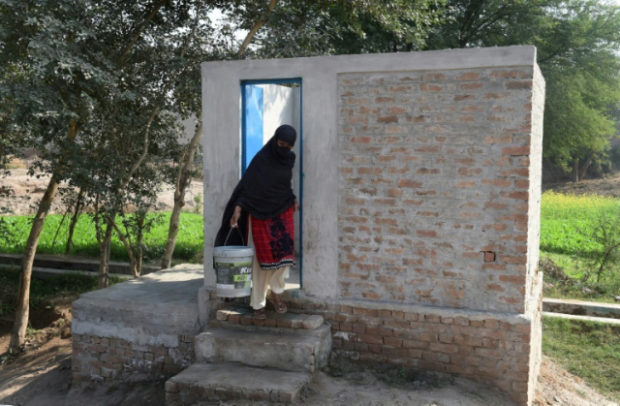For as long as she can remember, Ayeesha Siddiqua has fought her male relatives for access to toilets — but a sanitation drive by new premier Imran Khan could make life easier for women in patriarchal Pakistan.
“I told them: ‘You can go where you want, but me, my movements are restricted!,” said Siddiqua, who is in her 60s, in Basti Ameerwala, a small agricultural village in central Punjab province where residents have been relieving themselves in the open for generations.
Women in the village have long been forced to hide their bodily functions from the conservative, deeply patriarchal society, Siddiqua and other female residents told AFP.
Restraining themselves over long days working in the fields, they wait for night and the cover of darkness, braving snakes, dogs, or even unpleasant encounters with strange men, Siddiqua’s daughter-in-law Tahira Bibi said, her face hidden by a brown veil.
“I would limit my consumption of water and eat less just to avoid going to the bathroom in the daytime,” the 35-year-old said, describing a ploy used by all the women interviewed by AFP in the region.
For the last month and a half, however, Tahira Bibi has not had to wait. A small red-brick cottage housing a pastel green squat toilet has been erected in front of her house.
The initiative has come from a Pakistani non-profit, the Lodhran Pilot Project (LPP), whose team has ventured into the remote hamlet to preach hygiene mainly, they say, to men.
Providing toilets is the responsibility of men in the region, according to Altaf Hussain, a program officer for LPP.
